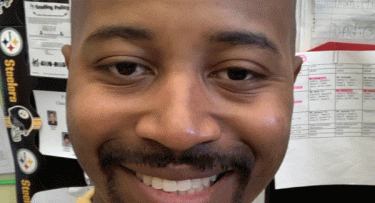
Mercy School of Education student Derek Horne ’19 uses chess to build his students’ social and emotional awareness. He teaches 15 fifth-grade students with autism and emotional disabilities at the Vida Bogart School for All Children, a school in the South Bronx that is designed to help students with special needs. “A lot of my students are impulsive and make decisions without thinking,” he says. “I'm a big chess player, and I know the game of chess takes a lot of concentration and focus. So I decided to use chess in my classroom as a teaching tool.”
First, Horne taught his class the game of chess, including the purpose of each piece and how the pieces move across the board. Then, he broke students into small groups and assigned each small group a different chess piece (e.g., pawn, bishop). Students worked in their small groups to decide how to move their group’s piece. As they became more familiar with the game, they learned to consider the repercussions of each potential move before deciding which one to make.
To prompt students to think strategically and see the lessons chess can teach, Horne asked students to imagine that the king and queen are the students’ best friends who are being picked on by the other team’s pawns and knights. Students considered how to keep their friends safe. In addition to improving their strategic thinking skills, this story led them to make connections to real-life situations in and out of school, which began to make a noticeable difference in their thought processes and behavior. For example, when one student reflected on his reaction to an incident on the playground, he said he thought about a specific move that resulted in losing a bishop on the chess board. “I knew I had to think it out because I know what will happen if I don’t,” he said.
As the culminating event, students demonstrated their new skills for their peers by playing chess using human-size chess pieces on three huge chess boards, which Horne rented and set up in the school’s auditorium. While his students played chess on stage, students from other classes were able to come up to watch their peers thinking strategically about their next moves and ask questions about their thought processes. “One of my students stated that the reason why he did not move his pawns into the center is because he wanted to create a barrier to protect the king, connecting this back to a basketball game he played over the summer in which a teammate guarded him,” explains Horne. “Making that type of connection was truly amazing. It shows that chess can influence students’ real-life behavior [and vice versa]. I want them to think, ‘Hey, if I can think like this and win at chess, maybe I can win in real life as well.’”
Mercy Associate Professor Esther Wermuth, who spent many years in schools as a teacher, school counselor and school administrator and now serves as Horne’s advisor at Mercy, is enthusiastic about the project’s impact: “This is an amazing project. I’ve never seen anything like it.” Given the impact chess has had on his students in the two months since school began, Horne plans to continue using the game in his classroom throughout the school year.
